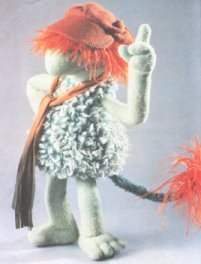China signals switch in reserves away from dollar
Amazing how many people don't seem to care or know much about what's happening to the economy and money system in the country. Inflation is going up, cost of living is going up, taxes going up, credit card interest going up, corporations are looting and/or renege on pensions, etc etc etc. We're all being raped financially. The mainstream media sure isn't screaming about it. Sure you'll see a story about things like other countries abandoning the dollar in the newspaper and maybe Lou Dobbs will mention something on CNN, but that's it. It's humorous to see people joke about how worthless the Peso is in Mexico while having no idea what is happening to the bills in their own pocket.
The bottom line is if this keeps up, the 1929 Great Depression is going to be nothing compared to what will be happening to the country in the coming years. So it goes.
By the way, the January 6th 2006 Financial Times says:
China indicated on Thursday it could begin to diversify its rapidly growing foreign exchange reserves away from the US dollar and government bonds – a potential shift with significant implications for global financial and commodity markets.
Economists estimate that more that 70 percent of the reserves are invested in US dollar assets, which has helped to sustain the recent large US deficits.
If China were to stop acquiring such a large proportion of dollars with its reserves – currently accumulating at about $15bn (€12.4bn) a month – it could put heavy downward pressure on the greenback.
In a brief statement on its website, the government's foreign exchange regulator said one of its targets for 2006 was to "improve the operation and management of foreign exchange reserves and to actively explore more effective ways to utilise reserve assets".
It went on: "[The objective is] to improve the currency structure and asset structure of our foreign exchange reserves, and to continue to expand the investment area of reserves.
"We want to ensure that the use of foreign exchange reserves supports a national strategy, an open economy and the macro-economic adjustment."
The announcement came from the State Administration of Foreign Exchange (Safe). It gave no more details about whether this meant a big shift in the investment strategy for Chinese reserves, which according to local press reports reached nearly $800bn at the end of last year and are expected by economists to near $1,000bn this year.
The regulator also said it would end quotas on the amount of foreign currency Chinese companies can acquire to invest in overseas assets, a decision that removes a bureaucratic hurdle facing companies that plan to make international acquisitions.
The statement comes at a time of growing debate in China on how the reserves are invested. Some economists have called on Beijing to use the funds to finance infrastructure investment and clean up state-owned companies, or to invest in higher-yielding assets rather than financing US borrowing.
However, according to Stephen Green, economist for Standard Chartered in Shanghai, although the language was "vague", Thursday's statement was the first time Safe has publicly indicated a shift away from dollar assets.
"It is a subtle but clear signal that they are interested in moving away from the US dollar into other currencies, and are interested in setting up some kind of strategic commodity fund, maybe just for oil, but maybe for other commodities," he said.
The Group of Seven leading industrialised economies has repeatedly called for an adjustment in global trade imbalances, including a rise in the renminbi. The US has expressed frustration that China has not allowed its currency to rise significantly after last July's 2 per cent revaluation. That saw China move from a dollar peg to managing its currency against a basket of currencies, potentially allowing the renminbi to rise against the dollar.
John Snow, US Treasury secretary, speaking earlier on Thursday, repeated his call for China to allow the renminbi to rise against the dollar. "The trade deficit is influenced by lots of things, differential growth rates, differential savings rates and investment rates and so on. But clearly, getting the [Chinese currency] more appropriately valued will be helpful to the global adjustment process," he said.
However, some economists believe it would be a mistake for China to shift its reserves into domestic investment or other asset classes.

0 Comments:
Post a Comment
Links to this post:
Create a Link
<< Home